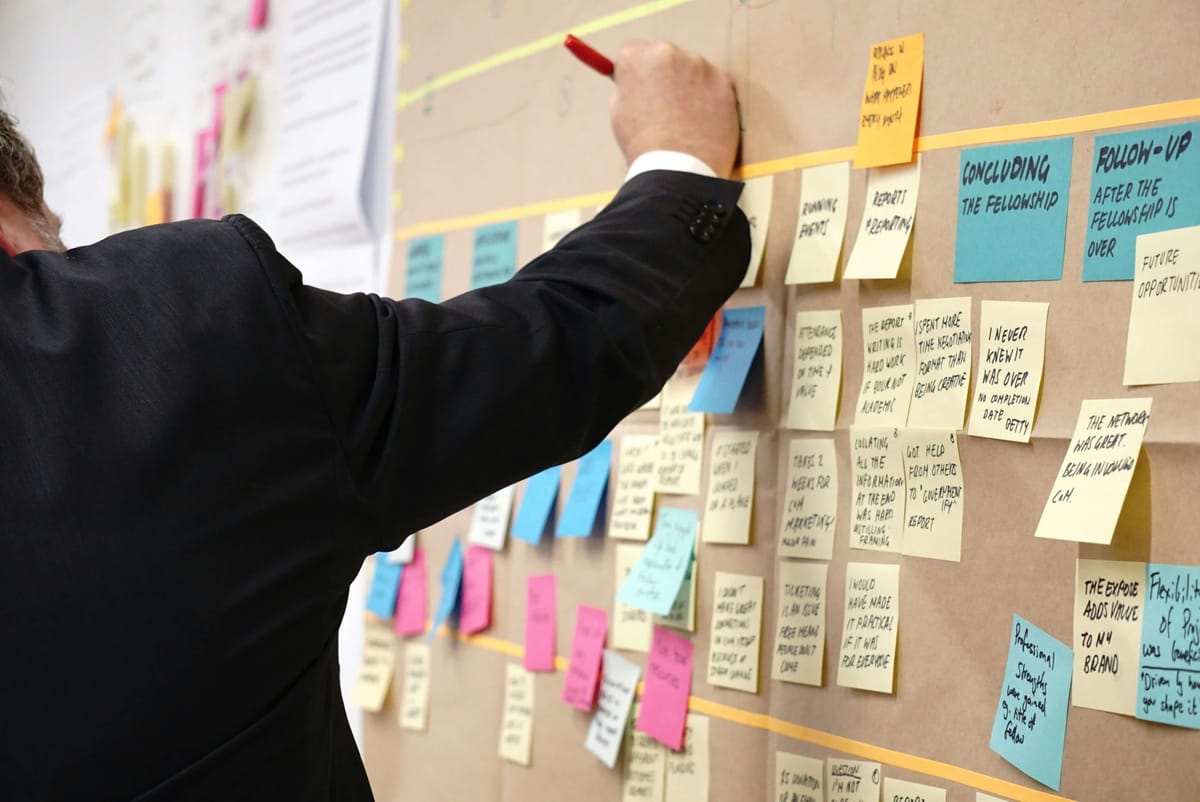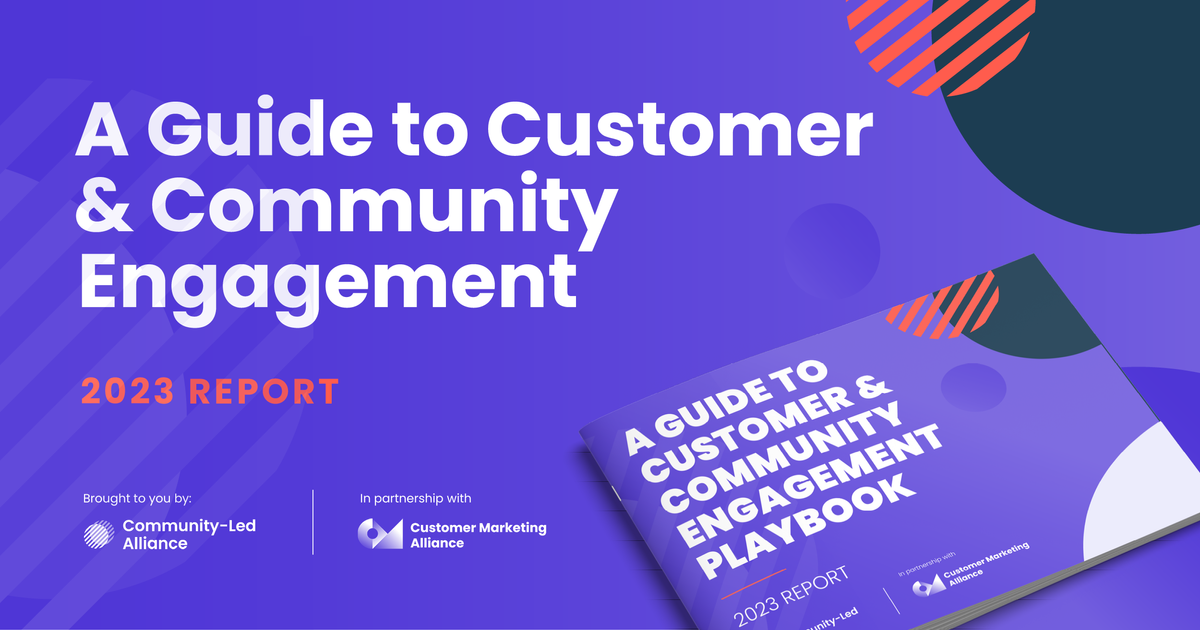With so much of our lives taking place online, community managers play an essential role in fostering and nurturing online spaces. They’re the bridge between an organization and its audience, ensuring members are heard, valued, and engaged.
Community managers have a range of responsibilities from moderating discussions, resolving conflicts, creating engaging content, and analyzing community metrics. But the landscape of online communities is always evolving, so the ability for community managers to adapt is not just an advantage, but a necessity.
Adaptability allows community managers to navigate the complexities of online interactions, respond to unexpected challenges, and continuously meet the needs of the community members. It’s a crucial skill for community managers to grow and nurture their community and ensure its long-term success.
In this article, we’ll take a look at the importance of being an adaptable community manager, the benefits, and strategies for developing these skills.
The ever-changing landscape of online communities
Online communities have undergone significant changes since their inception. In the early days online, forums and message boards were the primary venues for digital communication. These platforms allowed users to engage in topic-specific conversations, often centered around shared interests and hobbies.
As the internet has evolved, so did the platforms available for community building. Social media platforms like Facebook emerged, offering more dynamic and interactive ways for people to connect. These platforms introduced real-time messaging, multimedia sharing, and live streaming, which has revolutionized the way communities interact and engage with content.
But it’s not just the platforms that have changed, technology’s evolution has also played a key role in how online communities have changed. The rise of mobile internet access has enabled communities to stay connected anytime and anywhere, increasing the frequency and immediacy of interactions.
Advancements in AI and machine learning have also provided community managers with powerful tools for moderating content, analyzing user behavior, and personalizing member experiences. Trends such as gamification, influencer marketing, and the use of virtual and augmented reality have further enhanced the ways communities can engage and grow.
There have been major changes in community platforms and tools that highlight the need for adaptability among community managers:
- Algorithm updates: Social media platforms frequently update their algorithms, affecting how content is prioritized and displayed to users. For instance, Facebook's shift to prioritize posts from friends and family over brands and pages significantly impacted how community managers strategize content delivery.
- Platform policies: Changes in platform policies require community managers to quickly adjust their moderation practices and community guidelines.
- New features: The introduction of new features like Instagram Stories or LinkedIn Live necessitates that community managers stay informed and ready to leverage these tools to enhance community engagement.
- Platform migrations: Sometimes, entire communities need to migrate to new platforms due to various reasons, such as the shutdown of a platform (e.g., Google+). This requires significant planning and adaptability to ensure a smooth transition for community members.
As online spaces are continually changing and evolving, community managers need to remain adaptable to successfully navigate the changes and continue fostering vibrant and engaged communities.

The importance of adaptability for community managers
Adaptability in community management is the ability to effectively adjust strategies, approaches, and actions in response to changing circumstances within the community. This includes being open to new ideas, learning from experiences, and implementing necessary changes to maintain a healthy and engaged community.
Why adaptability is essential
- Responding to changes in platform algorithms and policies
Social media and community platforms frequently update their algorithms and policies, which impacts how content is distributed and how communities interact. Adaptable community managers need to stay ahead of these changes and adjust strategies accordingly.
For example, if a platform prioritizes video content, a community manager should be able to pivot to incorporate more video posts to maintain visibility and engagement. Similarly, when a platform introduces new policies or guidelines, adaptable community managers can quickly revise community rules and moderation tactics to ensure they comply.
- Addressing community needs and expectations
Communities are made up of a range of people with varying needs, preferences, and expectations. An adaptable community manager is skilled in recognizing these differences and tailoring their approach to meet the unique needs of their members.
This could mean anything from diversifying content to appeal to different segments of the community, implementing feedback mechanisms to understand member concerns, or goesting an inclusive environment where everyone feels valued.
- Navigating crises and unexpected challenges
Challenges and crises can arise in a community such as conflicts between members, technical issues with the platform, or external events that affect the community’s interactions. An adaptable community manager is prepared to handle these challenges. This means staying calm under pressure, quickly devising and executing action plans, and communicating transparently with the community.
Benefits of being an adaptable community manager
So, what are the benefits of being an adaptable community manager? Take a look:
Enhanced problem-solving skills
Adaptability sharpens a community manager’s problem-solving abilities, allowing them to quickly identify and address emerging issues. When unexpected challenges arise, such as a platform glitch, an adaptable community manager can assess the situation, devise an effective solution, and implement it properly. This proactive approach minimizes disruption and maintains the community’s trust.
Improved community engagement
An adaptable community manager continuously tailors their strategies to align with the evolving interests and preferences of their community members.
This means staying attuned to the latest trends, gathering and incorporating member feedback, and experimenting with new content formats and engagement techniques. Being flexible and responsive in this way means adaptable community managers can keep the community dynamic and relevant, thereby fostering high levels of engagement.
Whether it's introducing new discussion topics, hosting interactive events, or leveraging the latest social media features, adaptable community managers can sustain member interest and participation.

Greater resilience
Resilience is a key benefit of adaptability, allowing community members to bounce back from setbacks and maintain a positive environment. Challenges such as negative feedback, conflicts within the community, or external disruptions can impact morale.
An adaptable community manager can navigate these difficulties, learn from the experience, and make necessary adjustments. This resilience not only helps with overcoming current challenges, but also builds a stronger, more supporting community in the long run.
Personal growth and career development
Adaptability contributes to a community manager's personal growth and career development. By continually adapting to new technologies, trends, and challenges, community managers develop a versatile skill set that includes advanced problem-solving, strategic thinking, and effective communication.
These skills are highly valued across various industries, making adaptable community managers more competitive in the job market. Additionally, the ability to manage diverse situations and environments enhances their leadership capabilities, allowing for career advancement opportunities.
Strategies for developing adaptability
So, we can all agree that being an adaptable community manager is great for both the community managers themselves and their community as a whole, but how do they go about developing these skills?
Continuous learning and professional development
To stay adaptable, community managers need to keep on top of the latest industry trends and best practices. This could involve things like reading industry blogs, subscribing to relevant newsletters, and understanding emerging trends, new tools, and innovative strategies that can be applied to their communities.
Attending webinars, workshops, and conferences is another way to enhance your learning and improve your adaptability skills.
These events provide valuable opportunities to learn from experts, network, and gain insights into the latest advancements in community management.
By seeking out and attending these events, community managers can continually enhance their knowledge and skills, making them more adaptable.
Embracing change and experimentation
Community managers need to be open to experimenting with new tools and techniques. Whether it’s a new social media platform, a new engagement strategy, or an advanced analytics tool, trying out new approaches can lead to significant improvements in community management.
Experimentation allows community managers to discover what works best for their specific community and stay ahead of the curve.
Encouraging feedback from members is also a great way to foster adaptability. By regularly soliciting and analyzing feedback, community managers can gain insights into member preferences, concerns, and suggestions for improvement. This feedback loop allows community managers to make informed adjustments to their strategies and better the evolving needs of the community.
Building a flexible mindset
Developing a flexible mindset is crucial for adaptability. Practices such as mindfulness and stress management can help community managers maintain a calm and balanced approach to challenges and changes.
Having a flexible mindset also means having strong problem-solving skills, which are at the core of adaptability. Community managers can hone these skills by engaging in activities that challenge their critical thinking and creativity.
This might include taking on complex projects, participating in brainstorming sessions, or even solving puzzles and playing strategy games. Building robust problem-solving skills equips community managers to navigate and overcome a wide range of challenges in their communities.
By continuously learning, embracing change, and building a flexible mindset, you can stay ahead of industry trends, effectively respond to the evolving needs of your community, and maintain a thriving, engaged online space.

Final thoughts
The benefits of adaptability extend beyond the individual community manager to the entire community. An adaptable community manager can maintain a vibrant and engaging environment, fostering a sense of belonging and loyalty among members.
Their ability to pivot strategies and adopt new tools ensures that the community remains dynamic and relevant. This adaptability contributes to sustained growth, higher engagement levels, and a positive community atmosphere, ultimately leading to long-term success.
Get your free copy of our guide to customer and community engagement to navigate this ever-evolving landscape. Unlock the potential of your community and customers now.





